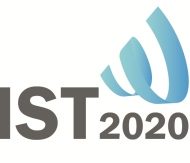“Governance in an Era of Change – Making Sustainability Transitions Happen”
European Parliament has declared a climate emergency, following a number of countries and local communities worldwide. Proposals for a “Green New Deal” have been advanced on both sides of the Atlantic, seeking broad-based support. Calls for “just transitions for all” constitute an integral part of the Paris Agenda and the Green Deal proposed by the President of the European Commission. These and other recent developments create the impression that there is a growing realization of the necessity of immediate and profound systemic change, in order to tackle the manifold global crises of our times. However, business-as-usual and one-size-fits-all approaches won’t be successful in providing the most effective and suitable multi-level and place-based actions, policies and governance approaches that will substantially boost transitions in this respect.
Against this background, the call for IST 2020 “Governance in an Era of Change – Making Sustainability Transitions Happen” invites researchers to put these developments into perspective. Following up on last year´s focus on “Accelerating sustainability transitions”, we specifically invite contributions that address structural issues and causes for current challenges together with the design and implementation of transformative governance and policies for systemic change. Contributions may want to shed light on issues such as the role of the state, the role of non-state actors (e.g. intermediaries, social movements) or new forms of governance tackling multiple, interacting, and potentially overlapping transitions. We also welcome contributions that address the challenges and opportunities of “just transitions”, including e.g. tradeoffs between different sustainability objectives.
- How to best understand and problematize the nature of the challenges ahead? What lenses do we need, to identify the multi-dimensional causes of the current crisis and the causal interlinkages between various phenomena?
- What are the critical conditions that enable individuals and collective actors to build up and mobilize the capacity for systemic and structural change?
- What kind of multi-level governance configurations foster the capacity to accelerate profound change across various scales? How does the political, legal, institutional context shape and constrain transformative governance strategies?
- What is the future of work in sustainability transitions, and what about the role/representation of the labor force in shaping transitions?
- What are the challenges of “just transitions”, how do we increase participation in governance processes, and how do we deal with conflicting sustainability goals?
Extended abstracts (max 600 words) for all session formats, with brief biographies of authors and session organizers for dialogue sessions (max 4 lines per person), should be submitted by 12 February 2020 through the abstract system Easy Chair. Abstracts for full papers, speed talks and posters should clearly identify the most relevant conference track and should describe the key research questions, theory, method, and findings. Abstracts for dialogue sessions should describe the thematic focus, the contributions of speakers, and explain how the session will be organized (e.g., how it will maximize audience participation).
By submitting abstracts and papers, authors provide permission to the organizing team to post abstracts and titles publicly as part of conference materials. The full papers will be made available for the conference participants for a limited time. Copyright of the material remains with the authors.
Submissions will be reviewed based on the following criteria: novelty, quality, and engagement with the conference theme and STRN research agenda. Notification of acceptance is expected to be communicated by 31 March 2020. Please note that depending on the number of submissions, and to ensure we have a viable and lively conference program, the organizers may allocate submissions to an alternative session format. Any reallocation will be communicated in the decision letter.
IST2020 follows previous IST conferences by providing a range of formats to stimulate scholarly debate as well as dialogue with practitioners:
Full paper sessions: 90 minute sessions for presentation and discussion of original research papers (typically 3 per session). Authors are required to submit a draft of their full paper in advance of the conference. Full papers are also eligible for nomination for the best paper award (details to follow).
Speed talk sessions: 60 minute sessions for 3 to 5 speed talks, which briefly introduce new research ideas, data and analytical insights, and early stage work to provide a basis for collective discussion. We encourage contributions from practitioners as well as researchers. Submission of full papers is not required for speed talk sessions.
Posters: Posters will be displayed for the duration of the conference in a designated poster area. Authors will also have an opportunity to present their posters during a dedicated poster session in the conference program. A prize will be offered for the best poster presentation.
Dialogue sessions: 60- or 90-minute sessions, which aim to stimulate discussion and debate around a particular thematic focus. These sessions are proposed by an external session organizer / chair with pre-agreed speakers. Dialogue sessions should be conceived to maximize audience participation. The session organizer should propose the precise format of the session, which could be a panel, a sequence of speakers, a debate or workshop. We specifically invite proposals that feature non-academic participants and innovative formats. Submission of full papers is not required for dialogue sessions.
